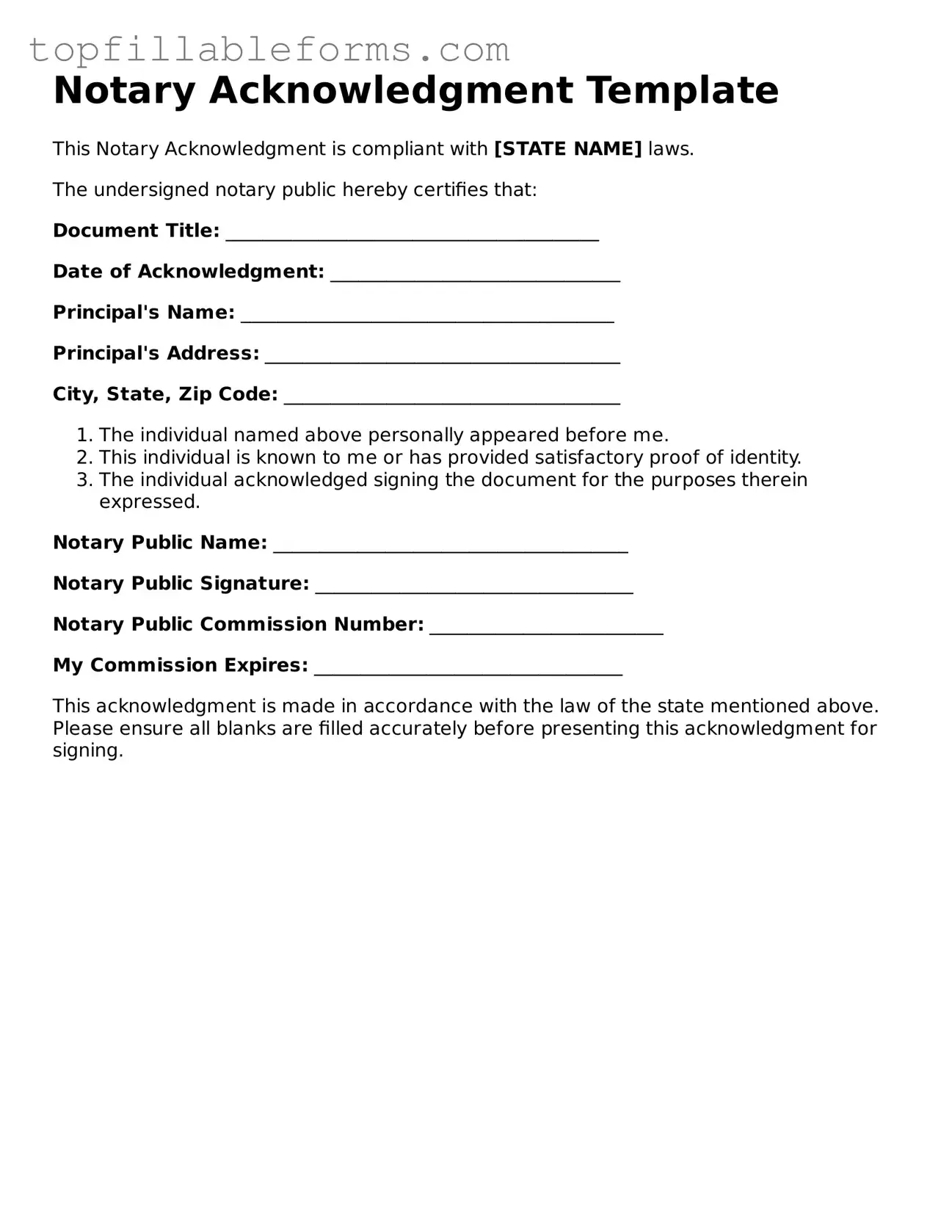Free Notary Acknowledgement Form
A Notary Acknowledgement form is a legal document that serves to confirm the identity of the person signing a document and their willingness to do so. This form is often used in various transactions, such as real estate deals or legal agreements, to ensure that signatures are authentic and voluntary. Understanding its purpose and proper use is essential for anyone involved in formal agreements.
Open Notary Acknowledgement Editor Here

Free Notary Acknowledgement Form
Open Notary Acknowledgement Editor Here
Finish the form now and be done
Finish your Notary Acknowledgement online by editing, saving, and downloading fast.
Open Notary Acknowledgement Editor Here
or
▼ PDF File
